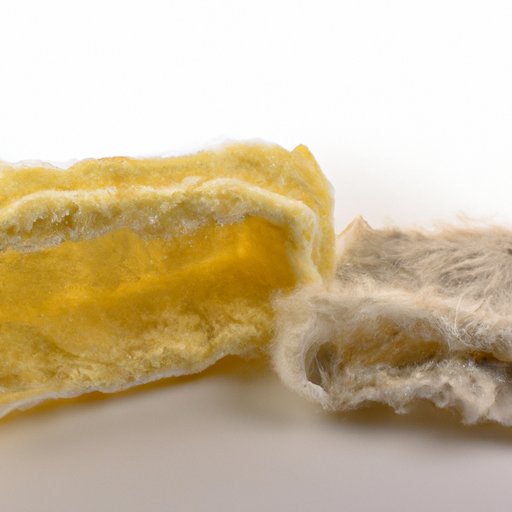Introduction
Mineral wool is a type of insulation material that is made from natural minerals such as rock, glass, and slag wool. It has been used in construction for many years and is renowned for its excellent performance when it comes to thermal, acoustic, and fire resistance. In this article, we will explore the different types of mineral wool available, look at their benefits and uses, and provide a guide to installing mineral wool.

What is Mineral Wool: An Overview
Mineral wool is a versatile building material that is made from molten minerals such as rock, glass, or slag wool. The molten materials are spun into fibers which are then bonded together with a binder. This creates a lightweight, yet strong material that is used in a variety of applications including insulation and fire protection.
Mineral wool is renowned for its excellent thermal and acoustic properties, as well as its fire resistance. It is also non-toxic and does not contain any harmful chemicals, making it a safe and eco-friendly choice for insulation.

Exploring the Benefits of Mineral Wool Insulation
Mineral wool is an excellent choice for insulation due to its superior thermal properties. It is able to retain heat efficiently, helping to keep your home warm in winter and cool in summer. It also has excellent acoustic properties, helping to reduce noise levels within the home.
In addition, mineral wool is highly fire resistant, providing an extra layer of protection in the event of a fire. This makes it an ideal choice for use in fire safety systems such as fire doors and fire walls.
Different Types of Mineral Wool for Building Applications
There are three main types of mineral wool that are used in construction: rock wool, glass wool, and slag wool. Each type has its own unique properties and benefits.
Rock Wool is made from basaltic rock that has been melted and then spun into fibers. It is known for its excellent thermal properties and is often used as insulation in roofs and walls.
Glass Wool is made from recycled glass that has been melted and then spun into fibers. It is known for its excellent acoustic properties and is often used as insulation in soundproofing applications.
Slag Wool is made from slag, which is a byproduct of steel production. It is known for its excellent fire resistance and is often used as insulation in fire safety applications.

The Advantages and Disadvantages of Mineral Wool
Mineral wool has many advantages, but there are also some potential drawbacks that should be considered. Here is a quick overview of the advantages and disadvantages of using mineral wool.
Advantages:
- Excellent thermal properties
- Excellent acoustic properties
- High fire resistance
- Non-toxic and eco-friendly
Disadvantages:
- Can be difficult to install correctly
- More expensive than other types of insulation
- Can be damaged by moisture
How to Install Mineral Wool Insulation
Installing mineral wool insulation can be tricky, so it is important to follow the manufacturer’s instructions carefully. Here is a brief overview of the steps involved in installing mineral wool insulation.
Preparation: Before you begin installing the insulation, make sure that the area is clean and free from debris. Also, inspect the area to ensure that there are no cracks or gaps that could allow air to escape.
Installation Steps: Once the area is prepared, you can begin installing the insulation. Start by measuring the area and cutting the insulation to fit. Then, place the insulation in the area and secure it with screws or adhesive. Finally, check to make sure that the insulation is secure and properly sealed.
Common Uses for Mineral Wool in Construction
Mineral wool is commonly used in a variety of building applications, including roofs, walls, and floors. It is an excellent choice for insulation, as it helps to improve energy efficiency and reduce noise levels. It is also widely used in fire safety systems, such as fire doors and fire walls.
Conclusion
Mineral wool is a versatile building material that offers excellent thermal, acoustic, and fire resistance properties. It is available in a range of forms, including rock wool, glass wool, and slag wool, each of which has its own unique benefits. However, it can be difficult to install correctly and can be more expensive than other types of insulation. When installed correctly, however, mineral wool can provide a valuable source of insulation and fire protection for your home.
(Note: Is this article not meeting your expectations? Do you have knowledge or insights to share? Unlock new opportunities and expand your reach by joining our authors team. Click Registration to join us and share your expertise with our readers.)
